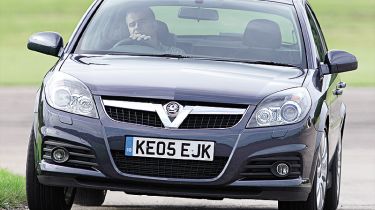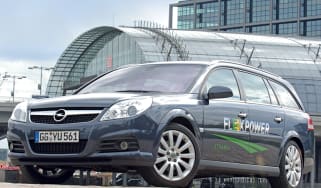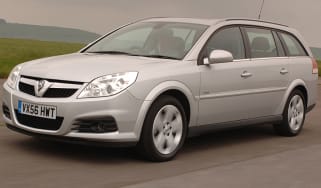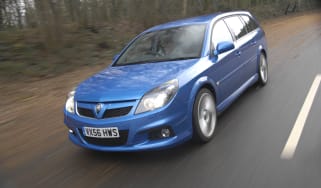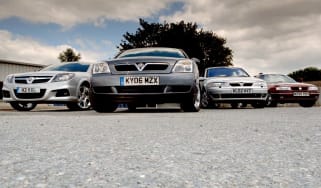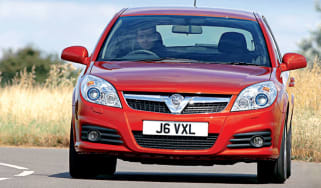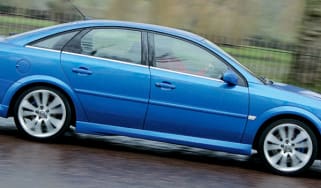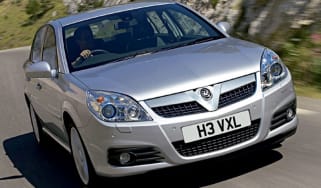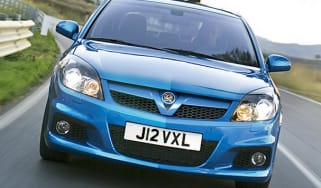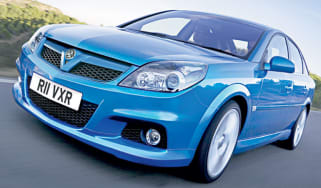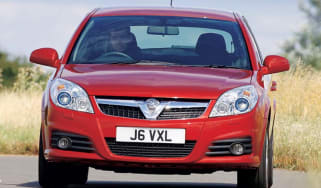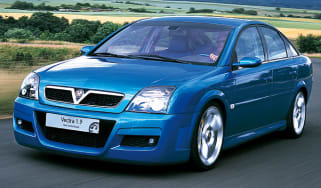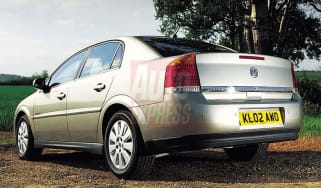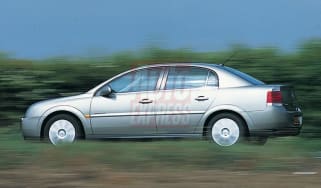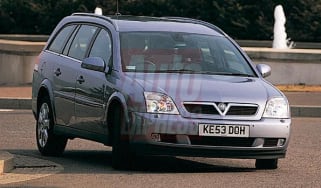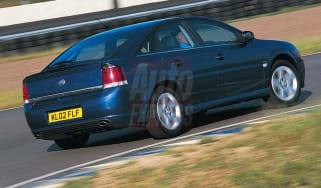Vauxhall Vectra review (2002-2008)
Fleet favourite Vauxhall has been transformed in recent years, now driving as well as the class front-runners.

Driving:
The Vectra used to have a reputation for dull dynamics, but facelifted models (spotted by their restyled fronts) have changed all that. Although not quite Mondeo-standard, the Vectra now handles with real finesse, offers the driver impressive feedback yet still strides with all its old finely damped ability. All powerplants are strong and the diesels offer enviable economy and pace, while motorway cruising is consummately comfortable and hushed, backed up by stability and comfortable seats.
Marketplace:
The Vectra range is angled strongly to its most loyal market, the fleet sector. So there is a large range of diesels, powered by the superb 120bhp and 150bhp 1.9-litre unit, while 1.8-litre and 2.2-litre petrol engines are relatively efficient too. The Mondeo rival also offers V6 petrol and diesel units, plus a mad Saab-sourced 2.8-litre turbo. Trims are reasonably clear and well judged; SXi and SRi models offer sporty looks without the VXR's expense, for example. The predominant bodystyle is hatchback, but four-door saloons are also available, as well as a longer-wheelbase estate with a huge load capacity; it's bigger than rivals, including the Honda Accord, Volkswagen Passat, Renault Laguna and Peugeot 407.
Owning:
All Vectras have large boots and the estate is one of the biggest you can buy. But rear passengers in the hatchback will suffer from a lack of headroom and the dash, while improved, still looks plasticky and blocky, though you can't fault build or quality; the Vectra imparts a Germanic feel. Residuals reflect its mass-market status - premium rivals retain much more - but list prices are competitive and much effort has been put in to making it cheap to run. Diesel versions' fuel efficiency and low CO2 emissions makes them popular with fleets, but retained values show this is a mass market car.
